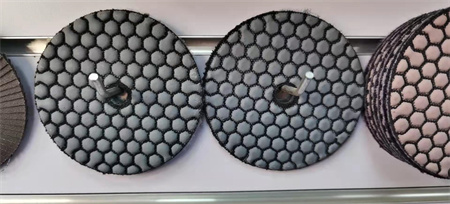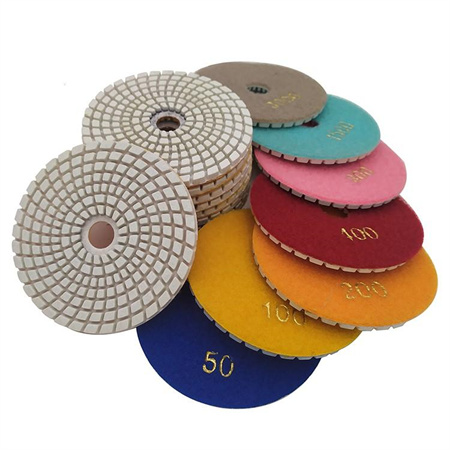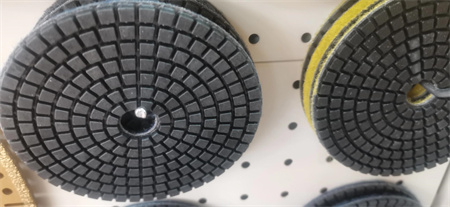Questions to Ask Your Supplier Before Purchasing Diamond Pads
When it comes to purchasing diamond pads, it’s not just about picking the first product that catches your eye. The process requires careful consideration to ensure you are getting high-quality pads that are both efficient and durable. Before making your decision, here are some crucial questions to ask your supplier to help guide your purchase.
1. What Type of Diamond Pad is Best for My Application?
Diamond pads come in a variety of types, each suited for specific tasks. Whether you’re working on concrete floors, granite countertops, or polishing marble, the type of diamond pad you choose plays a significant role in the result you achieve. Ask your supplier about the best option for your specific needs, especially if you are unsure. For example, wet pads are ideal for some surfaces, while dry pads may be more effective for others. Understanding your requirements will help you avoid purchasing pads that won’t meet your expectations.
2. What Grit Sizes Are Available, and What Should I Choose?
Diamond pads are available in a wide range of grit sizes, typically ranging from coarse to ultra-fine. The grit size you choose will depend on the level of polishing or grinding you require. If you’re working with a rough surface that needs significant abrasion, a coarser grit will be necessary. However, for finishing touches and achieving a smooth, high-gloss surface, a finer grit is preferable. Be sure to ask your supplier for recommendations based on the surface you’re working on and the type of finish you desire.
3. How Durable Are the Diamond Pads?
Durability is a key factor when it comes to diamond pads. After all, these pads are an investment, and you want to ensure that they last through numerous uses. Ask your supplier about the lifespan of the pads they offer. Factors such as the type of diamond used, the bonding material, and the manufacturing process will affect how long the pads will maintain their effectiveness. A reliable supplier should be able to provide insight into how many square feet each pad can handle before it begins to lose its efficiency.

Not all diamond pads are compatible with every machine. Whether you’re using a handheld grinder, floor buffer, or an industrial polishing machine, it’s important to ensure the pads you purchase fit your equipment. Ask your supplier for detailed specifications regarding compatibility. The last thing you want is to purchase a set of pads only to find they don’t match your tools, leading to unnecessary delays or additional expenses.
5. What Safety Standards Do the Pads Meet?
When dealing with diamond pads, safety should always be a priority. These pads are designed to handle tough materials and can be hazardous if not used correctly. Ensure that the pads meet necessary safety standards. Your supplier should provide information on any certifications or tests that the pads have undergone to guarantee their safety during use. Proper safety standards ensure the pads are designed to withstand the pressures of grinding and polishing while minimizing risks for operators.
6. What Is the Price, and Are There Discounts for Bulk Purchases?
While the price of diamond pads can vary depending on quality and specifications, it’s important to get a clear idea of what you’re paying for. Don’t hesitate to ask about the price range and inquire about any discounts if you’re purchasing in bulk. If you plan on making a large purchase, your supplier may be able to offer you a better deal or include extras to sweeten the deal. It’s also helpful to compare prices with other suppliers, but remember that cheaper doesn’t always mean better when it comes to diamond pads.
7. Can You Provide Samples or Trial Periods?
Before making a full commitment, it’s a great idea to ask your supplier if they can provide you with samples or a trial period. Testing a diamond pad on a small scale before committing to a larger order can save you time, money, and frustration. A trial run will help you assess the pad’s performance, durability, and suitability for your needs. If your supplier is confident in the quality of their products, they should be willing to offer a sample or allow you to test the pads.

Sometimes issues arise after a purchase, and when it comes to specialized equipment like diamond pads, having reliable customer support is vital. Ask your supplier about their after-sales service and warranty policies. Are they available to answer questions or provide assistance if something goes wrong? Do they offer refunds or exchanges if the pads don’t meet your expectations? Reliable customer service is a strong indicator that the supplier values long-term relationships with customers and is committed to ensuring your satisfaction.
9. What Maintenance Is Required for the Pads?

10. What Is the Delivery and Shipping Time?
Lastly, inquire about the delivery and shipping timelines. If you have a tight schedule or project deadline, it’s crucial to know when you can expect the pads to arrive. Ask about shipping costs, delivery times, and whether expedited shipping is available. Reliable and timely delivery ensures you can begin your project without unnecessary delays.
In conclusion, purchasing diamond pads isn’t as simple as picking a product off the shelf. By asking the right questions, you can ensure you’re making an informed decision that will lead to better results, fewer hassles, and a longer-lasting investment.